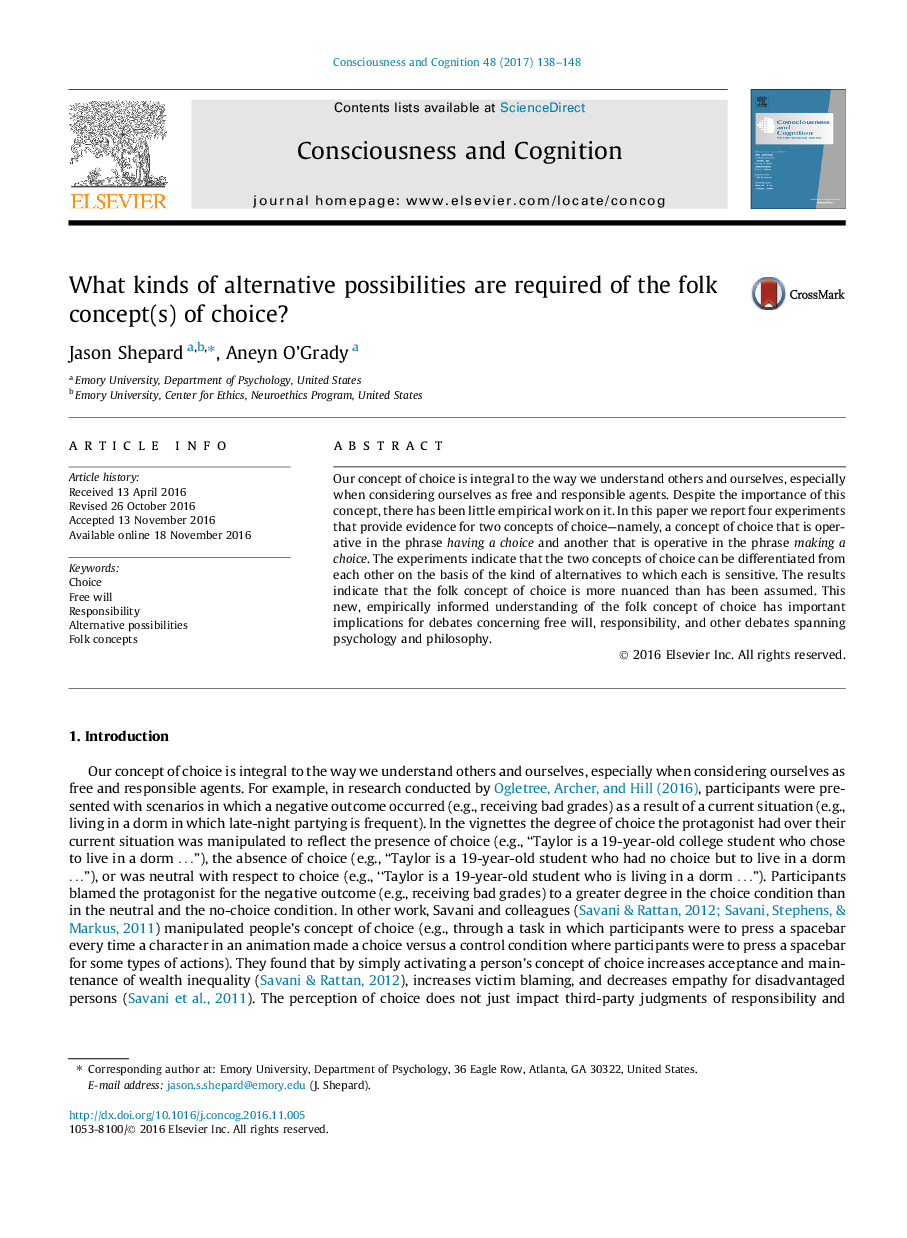| Article ID | Journal | Published Year | Pages | File Type |
|---|---|---|---|---|
| 5041900 | Consciousness and Cognition | 2017 | 11 Pages |
â¢Our concept of choice is integral to the way we understand others and ourselves.â¢We report four experiments that provide evidence of two distinct concepts of choice.â¢The two concepts of choice are sensitive to different kinds of alternatives.â¢These findings have implications for debates spanning psychology and philosophy.
Our concept of choice is integral to the way we understand others and ourselves, especially when considering ourselves as free and responsible agents. Despite the importance of this concept, there has been little empirical work on it. In this paper we report four experiments that provide evidence for two concepts of choice-namely, a concept of choice that is operative in the phrase having a choice and another that is operative in the phrase making a choice. The experiments indicate that the two concepts of choice can be differentiated from each other on the basis of the kind of alternatives to which each is sensitive. The results indicate that the folk concept of choice is more nuanced than has been assumed. This new, empirically informed understanding of the folk concept of choice has important implications for debates concerning free will, responsibility, and other debates spanning psychology and philosophy.
